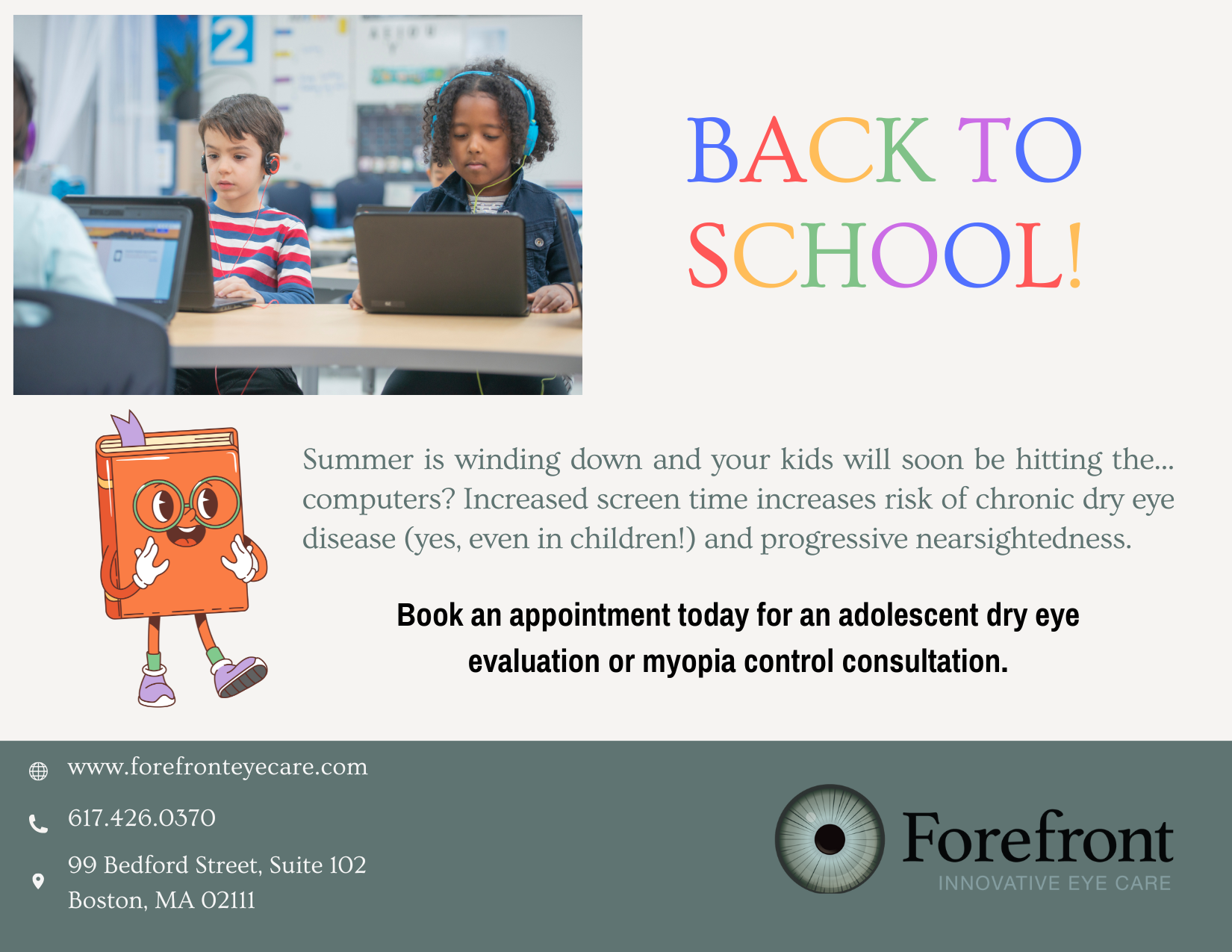
Standard contact lenses aren’t right for everyone. In fact, there are many different eye conditions that can make regular contact lenses uncomfortable or unstable, resulting in issues such as irritation and poor quality vision. Keratoconus is a common eye issue that can prevent patients from wearing standard contacts. Keratoconus is a fairly uncommon eye condition in which the clear dome covering the front part of the eye, called the cornea, becomes progressively thinner. As it thins out, it also begins to bulge outwards, creating a conical shape rather than the usual even curvature. As a result of this unusual shape, the light that enters the eye isn’t refracted properly, causing the sufferer to experience blurred vision. Exactly what causes keratoconus isn’t always known, but constant inflammation from allergies or irritants, eye rubbing, and other trauma are believed to be contributing factors.
Unsurprisingly, patients with keratoconus often find that standard contact lenses don’t fit properly. Nevertheless, contact lenses actually play a crucial role in the treatment of this eye condition. Instead, people with keratoconus are recommended to try a type of specialty contact lens. Specialty contact lenses are those which have a different design to standard contacts and have been specifically created to overcome issues that can otherwise prevent a patient from wearing contact lenses.
Rigid Gas Permeable Lenses For Keratoconus
Rigid gas permeable lenses, or RGP lenses for short, are not a new solution for refractive eye errors, but many patients are unaware that they are suitable for patients with eye conditions like keratoconus. In fact, they are often the first recommended treatment for the condition. As their name suggests, these lenses are made from a rigid, durable plastic that is harder than conventional soft lenses. This gives them the benefit of being able to retain their shape, which keeps them more stable and ensures better clarity of vision. Their shape also creates a tear layer that makes the shape of the cornea, correcting it to fit the natural shape of the lens. They are also gas permeable which means that oxygen can flow through them and reach the surface of the eyes. RGP lenses can be a little uncomfortable initially, but most patients do adapt to wearing them fairly quickly. If you find that you can’t, you may wish to consider hybrid lenses instead.
Scleral Lenses For Keratoconus
Scleral lenses are a great alternative to standard contact lenses. Their main difference is that they are significantly larger in size, with three different diameters available. They take their name from the fact that their edges make contact with the white part of the eye known as the sclera, rather than the cornea. They are also different in that they are vaulted and don’t make contact with the entire surface of the eyes, but instead leave space underneath. This space can accommodate any corneal abnormalities, such as the bulging seen in patients with keratoconus. It also creates a fluid reservoir for tear film, making them a good option for patients with dry eyes.
Hybrid Contact Lenses For Keratoconus
Hybrid lenses are a popular choice for patients who have keratoconus. These unique contact lenses combine the best elements of both soft and gas permeable contact lenses, enabling patients to enjoy a number of benefits.
As with other specialty contact lenses, hybrid contacts are designed to the exact specifications of the patient, which helps to guarantee both comfort and exceptional vision. Patients can benefit from a rigid but gas-permeable center to their contact that provides greater visual clarity than a soft lens would. This part of the lens also helps to trap a ‘liquid lens’ between the cornea and the contact lens that slightly compresses the front surface of the cornea so that it takes the form of the back surface of the lens. The outer part of hybrid lenses is comprised of a soft skirt, enabling the wearer to avoid the hard edges that are normally associated with rigid gas permeable varieties.
For more information about contact lenses for keratoconus, please contact Korb & Associates in Boston, MA at 617) 322-0534 Schedule an eye exam today!










